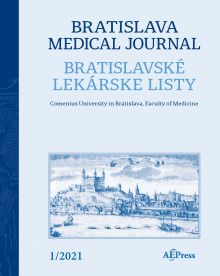 “∆ 9 -Tetrahydrocannabinol (∆9 -THC), the active phytocannabinoid in cannabis, is virtually an adjunct to the endogenous endocannabinoid signaling system.
“∆ 9 -Tetrahydrocannabinol (∆9 -THC), the active phytocannabinoid in cannabis, is virtually an adjunct to the endogenous endocannabinoid signaling system.
By interacting with G-protein-coupled receptors CB1 and CB2, ∆9 -THC affects peripheral and central circulation by lowering sympathetic activity, altering gene expression, cell proliferation, and differentiation, decreasing leukocyte migration, modulating neurotransmitter release thereby modulating cardiovascular functioning, tumorigenesis, immune responses, behavioral and locomotory activities respectively.
∆ 9 -THC is effective in suppressing chemotherapy-induced vomiting, retards malignant tumor growth, inhibits metastasis, and promotes apoptosis. Other mechanisms involved are targeting cell cycle at the G2-M phase in human breast cancer, downregulation of E2F transcription factor 1 (E2F1) in human glioblastoma multiforme, and stimulation of ER stress-induced autophagy.
∆ 9 -THC also plays a role in ameliorating neuroinflammation, excitotoxicity, neuroplasticity, trauma, and stroke and is associated with reliving childhood epilepsy, brain trauma, and neurodegenerative diseases.
∆9 -THC via CB1 receptors affects nociception, emotion, memory, and reduces neuronal excitability and excitotoxicity in epilepsy. It also increases renal blood flow, reduces intraocular pressure via a sympathetic pathway, and modulates hormonal release, thereby decreasing the reproductive function and increasing glucose metabolism.
Versatile medical marijuana has stimulated abundant research demonstrating substantial therapeutic promise, suggesting the possibilities of first-in-class drugs in diverse therapeutic segments. In this review, we represent the current pharmacological status of the phytocannabinoid, ∆ 9 -THC, and synthetic analogs in cancer, cardiovascular, and neurodegenerative disorders.”


 “The aim of this review article is to summarize current knowledge about the role of cannabinoids and cannabinoid receptors in tumor disease modulation and to evaluate comprehensively the use of cannabinoids in cancer patients.
“The aim of this review article is to summarize current knowledge about the role of cannabinoids and cannabinoid receptors in tumor disease modulation and to evaluate comprehensively the use of cannabinoids in cancer patients. “Pancreatic cancer is particularly refractory to modern therapies, with a 5-year survival rate for patients at a dismal 8%.
“Pancreatic cancer is particularly refractory to modern therapies, with a 5-year survival rate for patients at a dismal 8%. “Changes in the regulation of endocannabinoid production, together with an altered expression of their receptors are hallmarks of cancer, including colorectal cancer (CRC). Although several studies have been conducted to understand the biological role of the CB1 receptor in cancer, little is known about its involvement in the metastatic process of CRC. The aim of this study was to investigate the possible link between CB1 receptor expression and the presence of metastasis in patients with CRC, investigating the main signaling pathways elicited downstream of CB1 receptor in colon cancer. Fifty-nine consecutive patients, with histologically proven colorectal cancer, were enrolled in the study, of which 30 patients with synchronous metastasis, at first diagnosis and 29 without metastasis. A low expression of CB1 receptor were detected in primary tumor tissue of CRC patients with metastasis and consequently, we observed an alteration of CB1 receptor downstream signaling. These signaling routes were also altered in intestinal normal mucosa, suggesting that, normal mucosa surrounding the tumor provides a realistic picture of the molecules involved in tissue malignant transformation. These observations contribute to the idea that drugs able to induce CB1 receptor expression can be helpful in order to set new anticancer therapeutic strategies.”
“Changes in the regulation of endocannabinoid production, together with an altered expression of their receptors are hallmarks of cancer, including colorectal cancer (CRC). Although several studies have been conducted to understand the biological role of the CB1 receptor in cancer, little is known about its involvement in the metastatic process of CRC. The aim of this study was to investigate the possible link between CB1 receptor expression and the presence of metastasis in patients with CRC, investigating the main signaling pathways elicited downstream of CB1 receptor in colon cancer. Fifty-nine consecutive patients, with histologically proven colorectal cancer, were enrolled in the study, of which 30 patients with synchronous metastasis, at first diagnosis and 29 without metastasis. A low expression of CB1 receptor were detected in primary tumor tissue of CRC patients with metastasis and consequently, we observed an alteration of CB1 receptor downstream signaling. These signaling routes were also altered in intestinal normal mucosa, suggesting that, normal mucosa surrounding the tumor provides a realistic picture of the molecules involved in tissue malignant transformation. These observations contribute to the idea that drugs able to induce CB1 receptor expression can be helpful in order to set new anticancer therapeutic strategies.”



